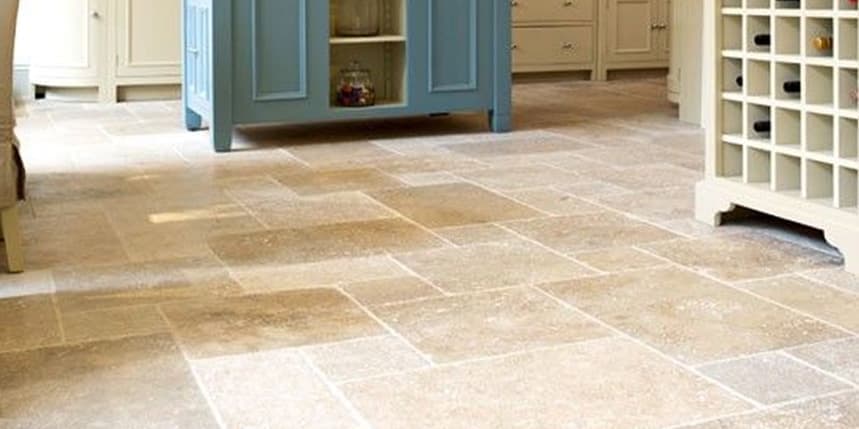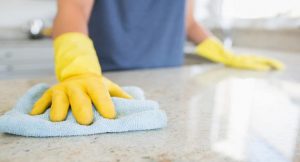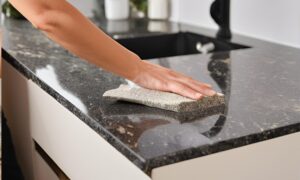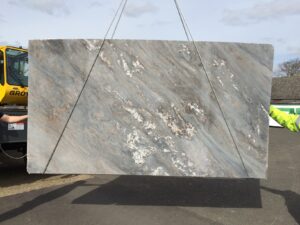How to Clean Natural Stone Floors
Stone is both durable and beautiful, so it’s popular throughout the home, from bathrooms to granite kitchen worktops to natural stone floors. It’s been used in grand buildings throughout the ages, from the Pantheon in Rome to Buckingham Palace. Stone has stood the test of time, but to keep it looking its best, it’s important to use the right cleaning methods.
Cleaning Tips for Stone
Stone is incredibly durable and strong, but that doesn’t mean it can’t be damaged. The acids and alkalis found in harsh cleaners, including bleach, can react with stone, dulling the surface, damaging the finish and causing pitting or wear. We recommend gentle cleaners, particularly for natural stone floors made of softer stones, such as marble or limestone.
The type of stone and the finish will indicate how careful you need to be with your cleaning products. Marble, limestone and other calcium-based natural stones are more susceptible to damage than harder stones like granite and quartz. Highly polished finishes are also easier to damage than natural cut or matt finishes, as the polish will show every scratch and can be dulled by the wrong cleaning products.
Choosing the Right Cleaning Products for your Stone Floors
In most cases, wiping down stone tiles, worktops or floors with soap and water should be sufficient. For more stubborn stains, or where you want a more thoroughly hygienic cleaning product, choose a gentle cleaner. These are better for natural stone floors, tiles and worktops, and are also kinder to your skin, your health and the environment. Acids or alkalis can damage stone and dull polished finishes. These include products marked with bleach, amonia, sodium hypoclorite or sodium peroxide solutions.
Porcelain and tile cleaners are not necessarily suitable for use on stone and may cause damage. It’s best to choose a product designed for stone. If you’re particularly concerned, you can get products designed to suit particular types of stone, allowing you to use the perfect cleaners for different tasks, such as for a granite kitchen worktop and natural stone floors.
Getting Rid of Limescale
Vinegar is one of the most effective ways to remove limescale. It’s cheap, readily available and, as it’s edible, is safe to use around children and pets. However, it is a mild acid and can cause damage to stonework. This is because limescale is primarily calcium carbonate, the same material that makes up limestone and marble. As a result, anything that dissolves limescale has the potential to dissolve these stones.
In most cases, natural stone floors and tiles used in bathrooms will be sealed, preventing moisture permeating the stone, giving it a smoother finish and making it more hygienic. This often protects the stone from the active agents in limescale removers but it is important to do a patch test with any new product, and to be aware that problems make build up over time.





